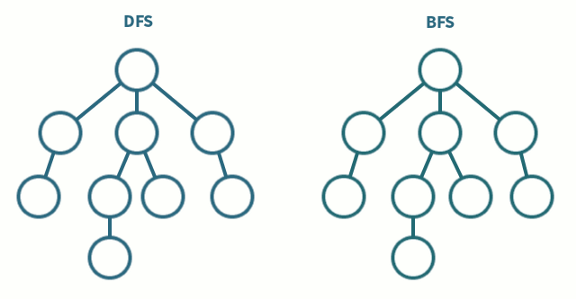There seems to be an outsized misconception from lots of aspiring devs that memorizing standard algorithms is vital. Now for a few job interviews that will be the case, but it’s not particularly important for actually being a successful developer.
So are the items you learn in an algorithm class useless? Absolutely not. what’s incredibly important is that the ability to think algorithmically. Not with great care that you just can reproduce and altar standard algorithms, but in order that you’re comfortable using code to unravel whatever problems you encounter as a dev.
That’s why we’ve assembled an inventory of 10 algorithms that aspiring devs should work-through to urge comfortable with thinking algorithmically.
1. Binary Search
Binary search is one among the primary things taught in any engineering class. it’s perhaps the best example of how a bit little bit of ingenuity can make things, quite literally, exponentially more efficient.
A binary search consists of taking a sorted array, and iteratively splitting the array into two and comparing part that you simply are searching for against each half, until you discover the element.
2. Selection, Bubble, and Insertion Sort
Sorting algorithms are one in all the foremost fundamental tools that a developer should have in their arsenal. Selection, Bubble, and Insertion sort are a number of the primary that new developers should go through. In any scenario when speed matters you’re not visiting be using these algorithms but working with them could be a great introduction to array traversal and manipulation.
3. Quicksort and Mergesort
Similar to #2, sorting algorithms are great for getting comfortable with arrays, but Quicksort and Mergesort are efficient enough to be utilized in serious applications. Being comfortable implementing these sorting algorithms(Note ‘Being comfortable’ and not ‘memorizing’) these algorithms are essential to being a significant developer.
4. Huffman Coding
Huffman coding is that the foundation of recent text compression. It works by considering how often different characters appear in an exceedingly text, and organizes them during a tree supported this frequency.

Taking the time to figure with Huffman coding could be a good way to urge comfortable with data representation and tree traversal, which are two of the foremost important issues that computer scientists must be ready to grapple with.
5. Breadth First Search
Again, trees end up to be at the center of plenty of algorithms and software that developers work with. As such, understanding basic tree traversal may be a top priority for an aspiring developer.
Breadth first search works by exploring a tree level by level until the target node is found. Since it literally hunting every level it’s sure to find an answer

6. Depth First Search
Continuing with tree traversal, Depth-First Search is that the other main approach for locating a part during a tree. rather than working down the tree level by level, it explores the branch by branch.

Now assuming it doesn’t have infinitely extended branches, DFS will similarly always work. Implementing these two search algorithms aren’t particularly complex, but what’s incredibly important is learning when to use one over the opposite. plenty of software design is having the ability to grasp the structure of the knowledge you’re working with, and pick algorithms that optimize for that structure.
7. Gradient Descent
Now for lots of developers, Gradient Descent isn’t necessarily visiting be useful. If, however, you’re touching anything with regression or machine learning, Gradient Descent goes to be at the guts of your work.

Gradient Descent may be a method of procedure optimizing functions using calculus. within the context of regression and machine learning, this implies finding specific values that minimize the error in your prediction algorithm. While it’s certainly more mathematically involved that lots of those other algorithms, if you’re working significantly with data and predictions, understanding how gradient descent works is incredibly important.
8. Dijkstra’s Algorithm
Another incredibly important issue that developers work with is path finding. Graphs end up to be an incredibly versatile thanks to describe every kind of problems that involve networks of distinct objects.

Dijkstra’s algorithm could be a way of finding the quickest path between two nodes in an exceedingly graph. it’s the inspiration of most work exhausted path-finding and finds itself employed in anything from AI to game design.
9. Diffie-Helllman Key Exchange
The Diffie-Hellman Key Exchange could be a great introduction to how cryptography tends to figure. More specifically, a Diffie-Hellman Key Exchange works by combining public and personal keys(Which are effectively long numbers) to encrypt information when it’s being transferred between different parties.

Even if you’re not working in cybersecurity, having a working understanding of encryption and secure communication is incredibly important to working as a developer. Additionally, although Diffie-Helman is way from the most effective algorithm, it’s incredibly easy to implement and is analogous enough to most other encrypted communication methods.
10. Doing Practice Problems
These first nine algorithms all gave you ways to unravel archetypes of problems you would possibly encounter as a developer. the fact, however, is that as a developer you’re often visiting be encountering algorithmic problems that are completely new. That’s why more important than memorizing any algorithm, is developing the flexibility to resolve problems algorithmically.
Luckily, there’s no shortage of internet sites to practice. a number of our favorites are:
https://leetcode.com/
https://projecteuler.net/(More mathematical)
https://www.hackerrank.com/
These are great environments to seek out difficult, yet fulfilling algorithmic problems and hone your skills.
So Now What?
Again, don’t just memorize these algorithms and think you’re suddenly a much better developer for it. Software Engineering, first and foremost, is about having the ability to know problems and build solutions. Learning algorithms isn’t important because you’re visiting need to exactly implement them for something you’re building. they’re important because they teach you the way to approach problems.








